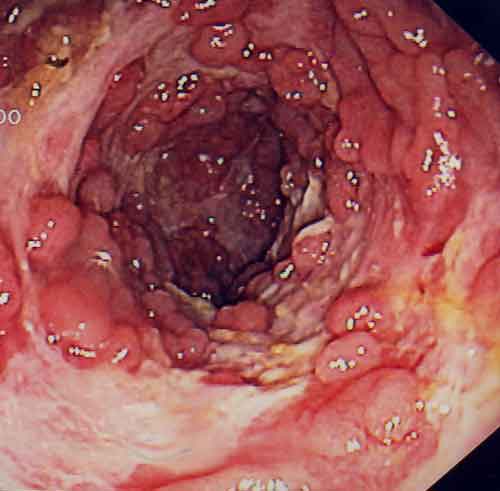
Crohn’s disease is an autoimmune disorder. the disease is characterized by periods of flare-ups, interspersed with periods of remissions. Crohn’s disease flare-ups might occur as a side effect of intake of certain food substances.
This is an extremely painful phase in the life of a Crohn’s disease patient. Inflammation of the intestines causes abdominal pain, stomach cramps, diarrhea and rectal bleeding. it might damage the intestines and impair nutrient absorption.
Unfortunately, Crohn’s disease could not be cured. Medications are prescribed to keep the symptoms of the disease under control. Standard drugs used for treating this disease include corticosteroids. These medications prevent the flare-ups by suppressing the entire immune system, which often causes adverse side effects.
Biologics for treating Crohn’s disease
To avoid the side effects of conventional immune suppressing drugs, health experts often recommend biologics for treating Crohn’s disease. Biologics, also known as biologic response modifiers, have been developed in recent years for treating the symptoms of Crohn’s disease.
These are genetically engineered therapies developed from living organisms. instead of suppressing the entire immune system, biologics target specific pro-inflammatory agents that trigger inflammation of the intestines.
Currently four types of biologics are used for treating Crohn’s disease. Biologics certolizumab, adalimumab and infliximab treat the intestinal inflammation by obstructing the function of a pro-inflammatory protein associated with inflammation of the digestion tract. another biologic, known as natalizumab, treats Crohn’s disease by preventing functions of certain white blood cells linked to inflammation.
Biologics are administered through injections. they are usually recommended for people suffering from moderate to severe Crohn’s disease. Doctors prescribe biologics only when the conventional drugs fail to prevent the flare-ups.
Side effects of biologics
Although biologics do not suppress the entire immune system, they significantly impair the functions of white blood cells that fight infections. Biologics might make people with Crohn’s disease susceptible to infections.
In rare cases, they can cause serious complications, which require hospitalization. Biolgics are not recommended for tuberculosis, multiple sclerosis and heart failure patients.
Rarely, biologics that inhibit functions of pro-inflammatory proteins cause lymphoma, a cancer of the lymph system. after receiving biologics, headache, nausea, rash and flu-like symptoms might develop.